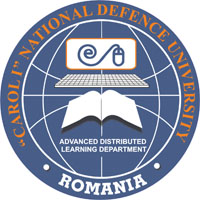DIGITAL LITERACY CHALLENGE IN THE CONTEXT OF CONTEMPORARY EDUCATION
DIGITAL LITERACY CHALLENGE IN THE CONTEXT OF CONTEMPORARY EDUCATION
Author(s): Alina Turculeţ, Cristina TulbureSubject(s): Education
Published by: Carol I National Defence University Publishing House
Keywords: digital skills; digital textbooks; ICT in learning process; profile of teaching profession
Summary/Abstract: Competitiveness Operational Program 2014-2020, the European Union strategy for smart, sustainable and inclusive growth and for economic, social and territorial cohesion, has the second priority axis Information and Communications Technology (ICT) for competitive digital economy. These actions will promote e-learning and enhancing digital literacy, which will enable people of all ages to acquire knowledge and skills in a particular field. The set of actions will enhance the learning process through greater involvement of students using ICT, thus producing a strong impact on their school performance, with the potential to reduce the dropout rate and increasing labor competitiveness in a global market. Improving digital skills will thus be a major contributor to e-inclusion, creating new opportunities and resources for growth. The actions are directed towards education, as main field, in order to enable the development of skills and digital literacy, increasing use of ICT in learning process (OER, Web 2.0) and developing ICT skills (Operational Program Competitiveness, prepared by the Ministry of European Funds, consultation document, March 2014). These priorities can be achieved through the implementation of projects aimed at using ICT in schools and at the development of digital skills of the educational actors, both in learning process and in the continuing education of teachers. The Romanian country profile described in The Teaching and Learning International Survey (TALIS) 2013 states that only 26% of teachers use ICT for students’ projects or class work (vs. a 34% EU average). In these circumstances, we intend to conduct a study, using both quantitative and qualitative research methods, among primary school teachers from secondary school from Braşov, Romania. The questions we intend to answer are related to equipping of schools with the means of using ICT in the learning process, using of educational software in current learning process, using of multimedia tools, using of Google applications in classrooms, identifying training needs of teachers in terms of digital skills in the context of introducing digital textbooks at primary level.
Journal: Conference proceedings of »eLearning and Software for Education« (eLSE)
- Issue Year: 11/2015
- Issue No: 02
- Page Range: 346-353
- Page Count: 8

